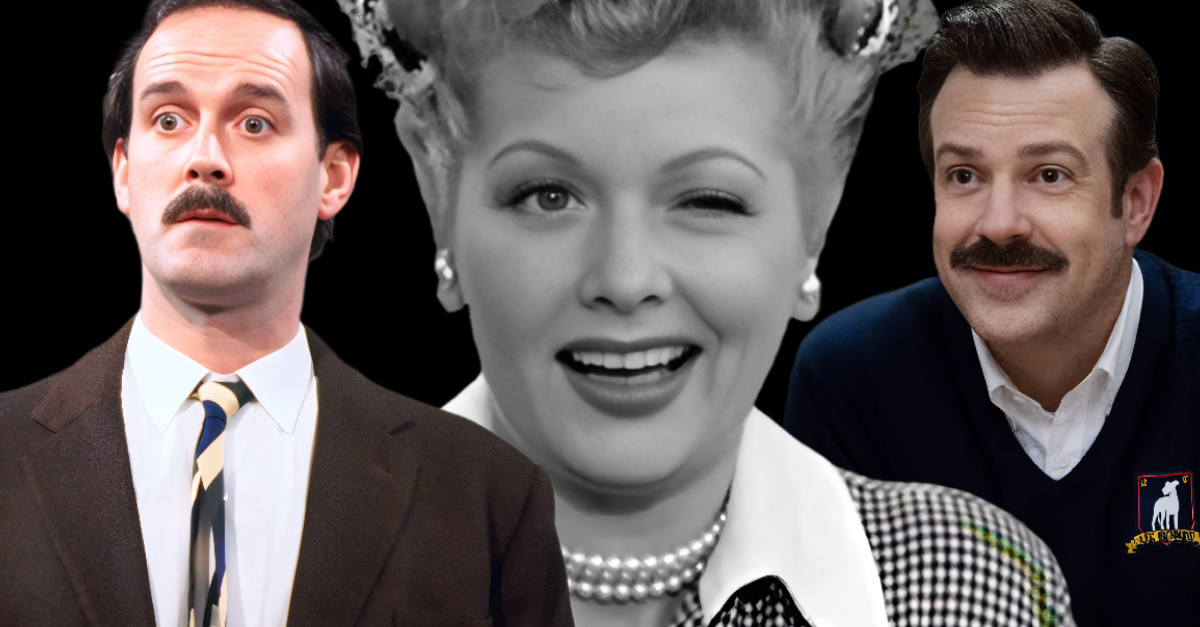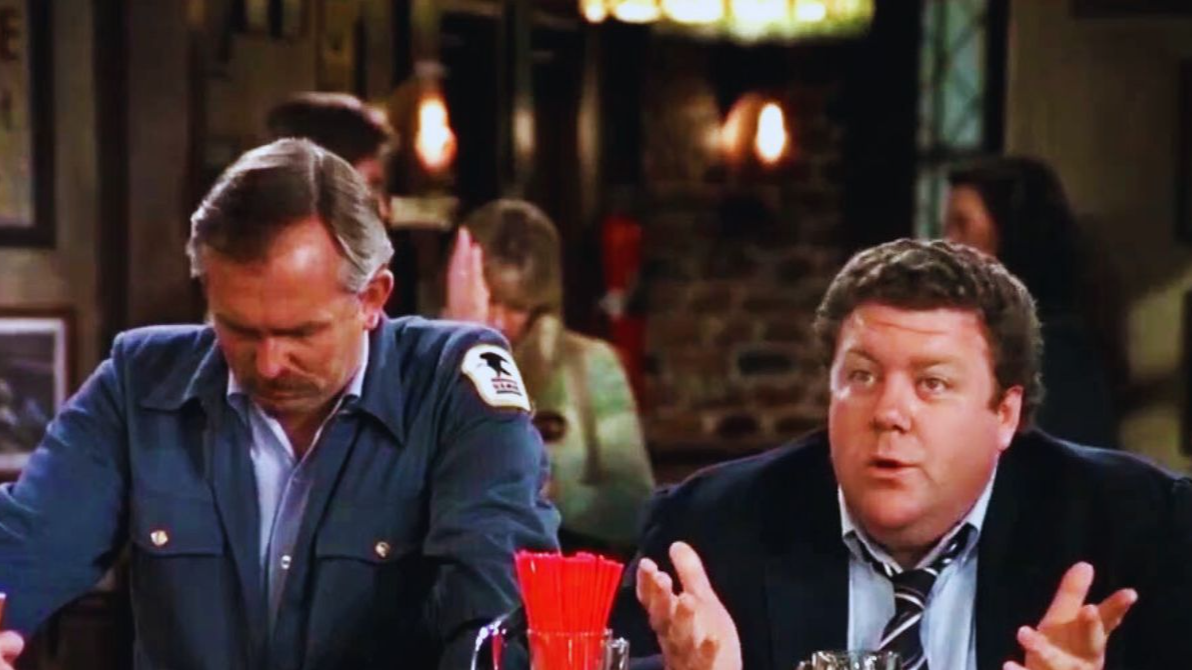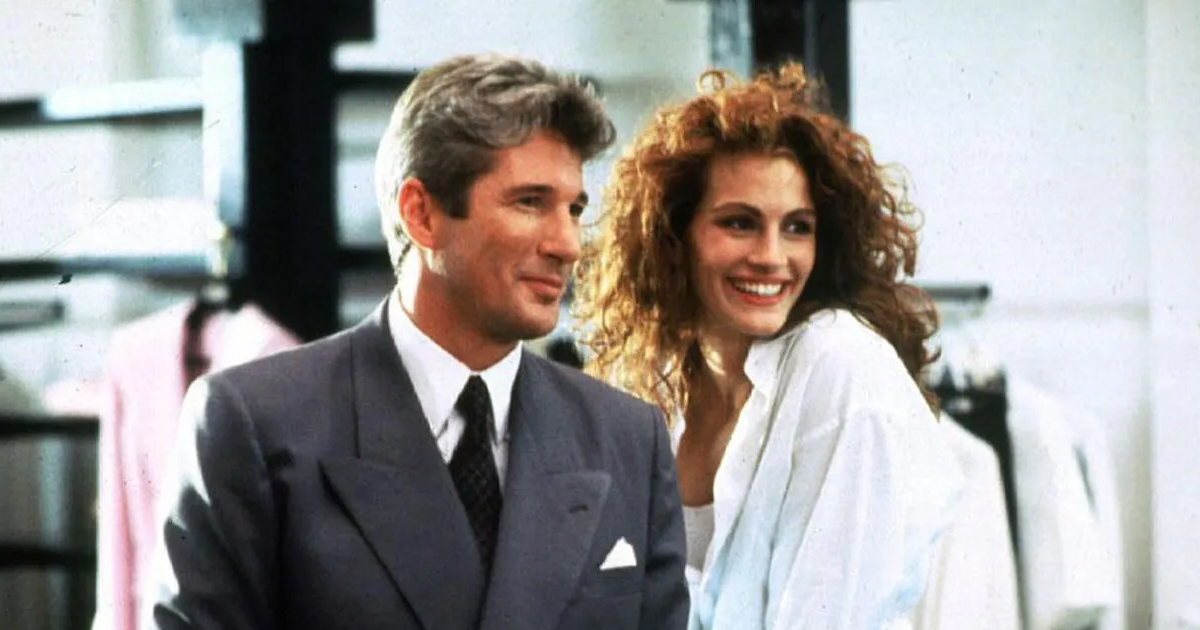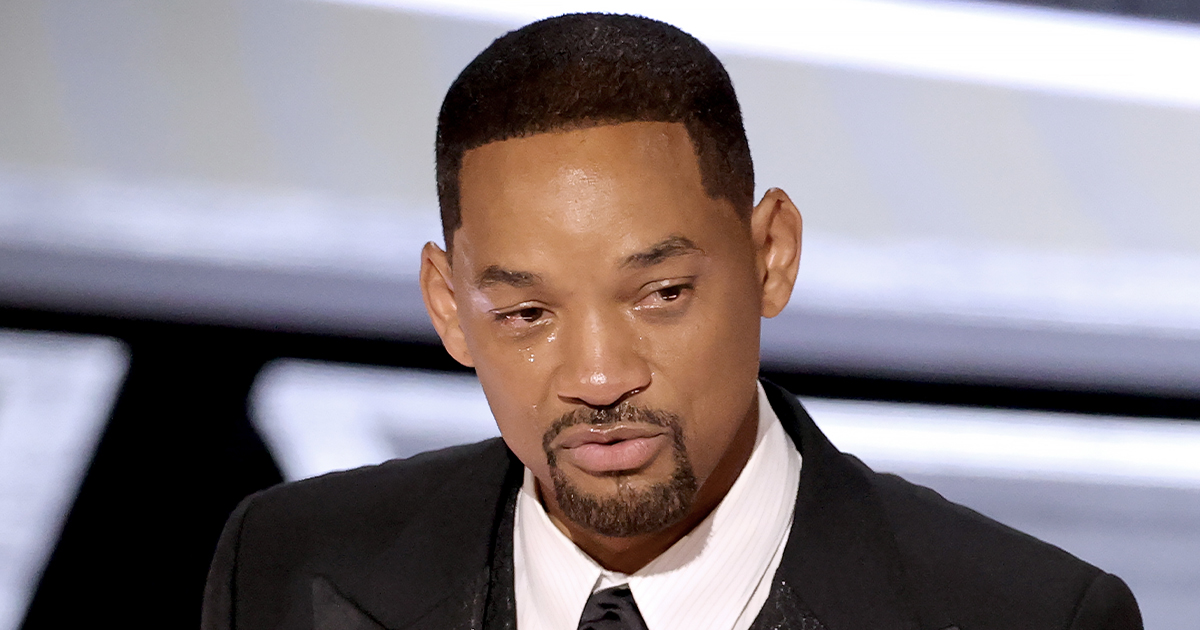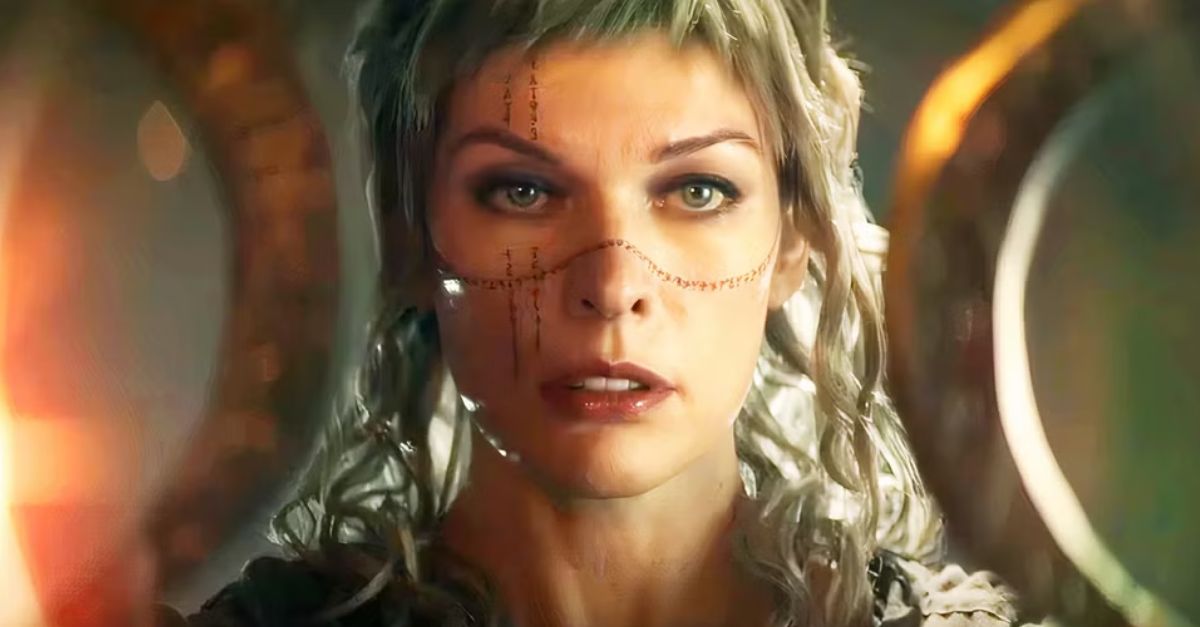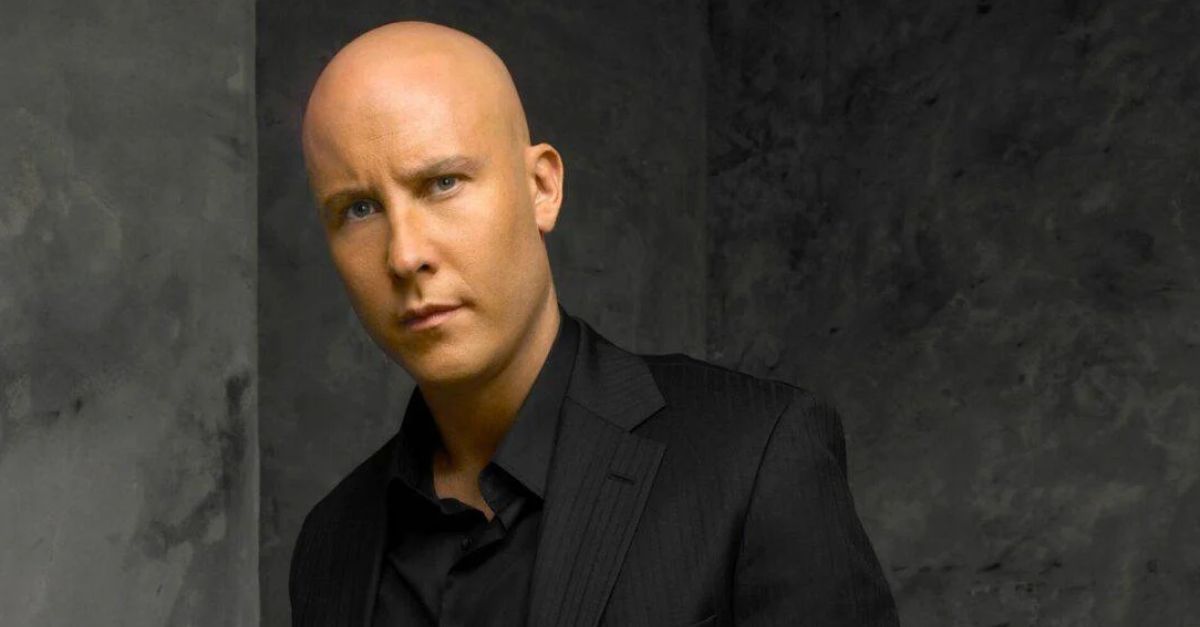What Is A Sitcom?
Sitcoms aren’t supposed to reinvent the wheel—just toss in some goofy neighbors, a laugh track, and call it a day. But every so often, a show comes along that flips the script. From chaotic hotel managers to awkward office workers, these sitcoms bent the rules, broke the mold, and made us laugh in ways nobody saw coming.
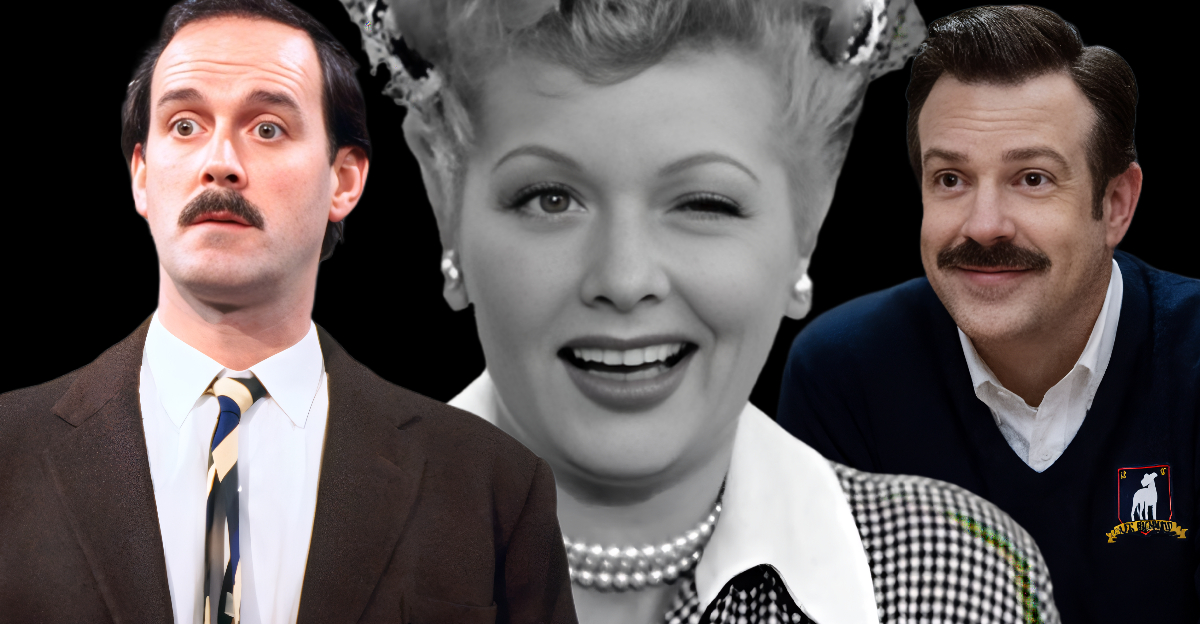
"I Love Lucy" (1951–1957)
Before Lucy, sitcoms were stiff. I Love Lucy gave us wild physical comedy, a live audience, and the first true reruns. Desi Arnaz’s production hacks basically built modern TV—and Lucy stuffing chocolates in her mouth is still funnier than half of what we see on Netflix today.
"The Mary Tyler Moore Show" (1970–1977)
Mary Richards was single, smart, and had zero interest in being anyone’s housewife. The Mary Tyler Moore Show made working women the stars and tossed real-world issues into the sitcom blender. Plus, Mary’s hat toss is still an iconic TV moment.
 CBS, The Mary Tyler Moore Show (1970–1977)
CBS, The Mary Tyler Moore Show (1970–1977)
"All in the Family" (1971–1979)
Archie Bunker wasn’t your typical goofy dad—he was loud, offensive, and way too close to reality. All in the Family made arguments about race, gender, and politics part of primetime. People laughed, cringed, and argued right along with him.
 CBS, All in the Family (1971–1979)
CBS, All in the Family (1971–1979)
"M*A*S*H" (1972–1983)
War isn’t funny—but M*A*S*H found a way to balance jokes with gut punches. One minute Hawkeye’s cracking wise, the next you’re ugly-crying. It was the sitcom that proved laughter and heartbreak can live in the same tent.
"Fawlty Towers" (1975–1979)
Only 12 episodes—and somehow it changed everything. John Cleese as Basil Fawlty was chaos incarnate, juggling rude guests, terrible staff, and his own meltdowns. It’s still the gold standard for sitcom farce, and yes, Manuel is “from Barcelona.”
 BBC, Fawlty Towers (1975–1979)
BBC, Fawlty Towers (1975–1979)
"Cheers" (1982–1993)
Sometimes you just want to go where everybody knows your name. Cheers turned a bar into the ultimate sitcom hangout, where even the background characters became legends. Without it, there’s no Friends, no How I Met Your Mother—just a lot of lonely beers.
"The Cosby Show" (1984–1992)
Complicated legacy aside, The Cosby Show flipped TV by showing a wealthy, educated Black family in primetime. It broke stereotypes, pulled in massive ratings, and gave us one of the most stylish sitcom wardrobes ever (yes, the sweaters).
 NBC, The Cosby Show (1984–1992)
NBC, The Cosby Show (1984–1992)
"Roseanne" (1988–1997)
Forget fancy apartments—Roseanne gave us a messy, middle-class family that couldn’t pay the bills. It was raw, honest, and often uncomfortable, but it proved sitcoms didn’t need perfect houses or perfect people to be relatable.
 ABC, Roseanne (1988–1997, 2018)
ABC, Roseanne (1988–1997, 2018)
"Seinfeld" (1989–1998)
A show about nothing? Try everything. Seinfeld made waiting for a table, bad soup, and puffy shirts into cultural events. No hugging, no learning—just neurotic brilliance that changed comedy forever. Yada yada yada, you know the rest.
 NBC, The Seinfeld Chronicles (1989)
NBC, The Seinfeld Chronicles (1989)
"The Fresh Prince of Bel-Air" (1990–1996)
Will Smith brought the laughs, but The Fresh Prince also tackled racism, class, and family drama. One minute you’re laughing at Carlton dancing, the next you’re crying at “Why don’t he want me, man?” A sitcom that could break your heart and then fix it again.
 NBC, The Fresh Prince of Bel-Air (1990–1996)
NBC, The Fresh Prince of Bel-Air (1990–1996)
"Absolutely Fabulous" (1992–2012)
Eddy and Patsy were drunk, selfish, and fabulous. Ab Fab proved you don’t have to root for sitcom characters—you can just watch them burn everything down. Champagne, cigarettes, chaos—it was the ’90s in sitcom form.
 BBC, Absolutely Fabulous (1992–2012)
BBC, Absolutely Fabulous (1992–2012)
"Friends" (1994–2004)
Six pals, one coffee shop, and a million catchphrases. Friends wasn’t just a sitcom—it was a cultural juggernaut. From “We were on a break!” to Joey’s “How you doin’?”, it proved sitcoms could dominate the planet.
 Warner Bros. Television, Friends (1994–2004)
Warner Bros. Television, Friends (1994–2004)
"Frasier" (1993–2004)
Highbrow and lowbrow walked into a bar—and out came Frasier. Opera jokes and slapstick farce lived side by side in Seattle’s fanciest apartment. Who knew a sitcom about a radio psychiatrist would become one of the smartest comedies ever?
"The Office" (U.K., 2001–2003)
Ricky Gervais made awkwardness into an art form. The Office gave us mockumentary style, cringe-inducing realism, and bosses you’d actually quit over. It’s the reason we all side-eye every staff meeting now.
 BBC, The Office (UK) (2001–2003)
BBC, The Office (UK) (2001–2003)
"Arrested Development" (2003–2019)
There’s always money in the banana stand. Arrested Development packed jokes inside jokes inside callbacks, making fans feel like detectives. It didn’t just reward rewatching—it demanded it. “I’ve made a huge mistake” became a lifestyle.
 Netflix, Arrested Development (2003–2019)
Netflix, Arrested Development (2003–2019)
"Trailer Park Boys" (2001–2018)
Low budget? Check. Swearing? Check. A dude named Bubbles? Double check. Trailer Park Boys turned mockumentary chaos into Canadian gold, proving you don’t need polish to be hilarious—just a lot of booze and a half-broken shopping cart.
 Netflix, Trailer Park Boys (2001–2018)
Netflix, Trailer Park Boys (2001–2018)
"30 Rock" (2006–2013)
Tina Fey turned the madness of TV production into comedy gold. 30 Rock was fast, absurd, and full of jokes about NBC eating itself alive. Tracy Jordan alone could carry three sitcoms—if he ever showed up on time.
"Peep Show" (2003–2015)
First-person camera angles? Inner monologues of pure self-loathing? Yep, that’s Peep Show. Mark and Jez’s cringe-worthy thoughts made it one of the boldest British sitcoms ever—and possibly the hardest to watch without covering your eyes.
 Channel 4, Peep Show (2003–2015)
Channel 4, Peep Show (2003–2015)
"Modern Family" (2009–2020)
It looked like your typical family sitcom—until the mockumentary cameras rolled. Modern Family made diverse family setups the norm, with sharp one-liners and sweet lessons hidden between Phil Dunphy disasters.
 ABC, Modern Family (2009–2020)
ABC, Modern Family (2009–2020)
"Community" (2009–2015)
One week it was a normal sitcom, the next it was a claymation Christmas or a spaghetti Western paintball war. Community thrived on meta jokes and genre parodies, basically inventing sitcom chaos theory. Six seasons and a movie, please.
"Parks and Recreation" (2009–2015)
Parks and Rec started shaky but became the warmest, weirdest, most optimistic sitcom out there. Leslie Knope’s binder obsession, Ron Swanson’s steak obsession, and Chris Traeger’s positivity redefined wholesome comedy. Literally.
 NBC, Parks and Recreation (2009–2015)
NBC, Parks and Recreation (2009–2015)
"Brooklyn Nine-Nine" (2013–2021)
Police sitcoms were usually all clichés—until Brooklyn Nine-Nine showed up with diverse characters, smart writing, and a lot of yogurt jokes. It was funny, progressive, and gave us the Halloween Heists—basically sitcom legend.
 NBC, Brooklyn Nine-Nine (2013–2021)
NBC, Brooklyn Nine-Nine (2013–2021)
"Kim’s Convenience" (2016–2021)
A Korean-Canadian family running a corner store doesn’t sound groundbreaking, but Kim’s Convenience made it so. With cultural specificity and universal humor, it nailed immigrant family life and gave us Simu Liu before he went full Marvel.
 CBC Television, Kim’s Convenience (2016–2021)
CBC Television, Kim’s Convenience (2016–2021)
"Atlanta" (2016–2022)
Donald Glover said “sitcom” and then threw out the manual. Atlanta could be hilarious, surreal, terrifying—sometimes all in one episode. One week it’s rap jokes, the next it’s a horror movie. It showed comedy doesn’t have to stay in its lane.
"Fleabag" (2016–2019)
Phoebe Waller-Bridge’s Fleabag wasn’t just funny—it was raw, messy, and broke the fourth wall so often it shattered. Equal parts hilarious and heartbreaking, it proved sitcoms could be brutally honest about love, grief, and guinea pig cafes.
 Amazon Prime Video, Fleabag (2016–2019)
Amazon Prime Video, Fleabag (2016–2019)
"Schitt’s Creek" (2015–2020)
From spoiled riches to small-town realness, Schitt’s Creek pulled off the ultimate glow-up. It started quirky and ended with one of the most heartfelt, inclusive finales ever. Plus, Moira Rose’s wigs deserve their own sitcom.
 CBC Television, Schitt’s Creek (2015–2020)
CBC Television, Schitt’s Creek (2015–2020)
"Ted Lasso" (2020–2023)
On paper: an American football coach running a British soccer team. In practice: pure serotonin. Ted Lasso made kindness and optimism the punchlines—and somehow it worked. Sitcoms got wholesome again, and we all got a little better for it.
 Apple TV+, Ted Lasso (2020–2023)
Apple TV+, Ted Lasso (2020–2023)
"Black Mirror: Bandersnatch" (2018) [Special Note]
Okay, this one's not a sitcom—but its choose-your-own-adventure style showed how comedy could go interactive one day. Sitcoms haven’t taken this leap yet, but imagine choosing whether Ross says “We were on a break” or keeps quiet. The future’s weird—and hilarious.
 Netflix, Black Mirror: Bandersnatch (2018)
Netflix, Black Mirror: Bandersnatch (2018)
You Might Also Like:
Quiz: Can You Match the Character to the Sitcom?
Are You A TV Buff? How Many Of These Sitcom Trivia Questions Can You Answer?

